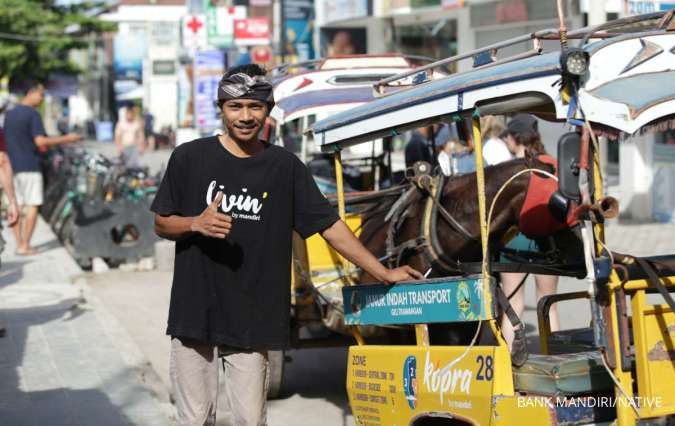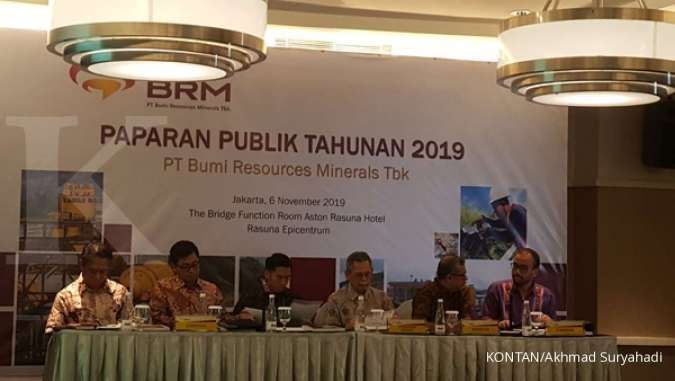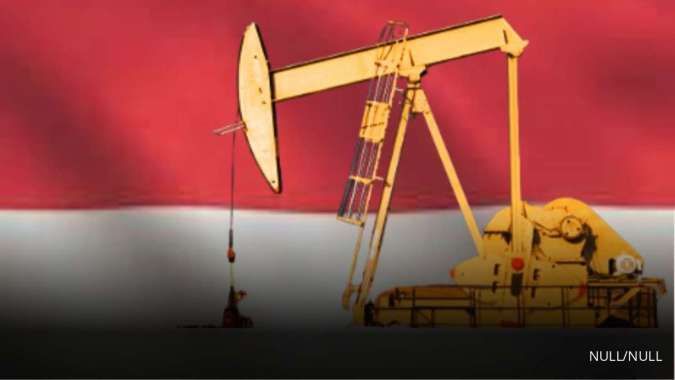KONTAN.CO.ID - JAKARTA. The Special Task Force for Upstream Oil and Gas Business Activities (SKK Migas) is targeting oil lifting in 2024 to approach 600 thousand barrels of oil per day (BOPD). The Head of SKK Migas, Dwi Soetjipto, said that this year's oil lifting target in the state budget is 635 BOPD, while the oil lifting target in the Work Program and Budget (WP&B) approved by the contractors, namely the Cooperation Contract Contractors (KKKS), is 596 BOPD. "We have a 1% decrease in oil, we also report this as the lowest decrease in one year compared to the previous year, the 2024 target is 635 thousand in the state budget and 596 thousand in the WP&B," said Dwi in a Hearing Meeting (RDP) with Commission VII of the House of Representatives, Wednesday (13/3).
Baca Juga: Pradiksi Gunatama (PGUN) Targets CPO Production of 79,012 Tons in 2024 Dwi stated SKK Migas will strive to achieve oil lifting production in 2024 so as not to be less than 600 thousand BOPD amid challenges at the beginning of the year facing natural disasters of flooding. "Even though at the beginning of the year we faced natural disasters of floods that hit so many KKKS wells, especially in Rokan and South Sumatra," said Dwi. In 2023, SKK Migas recorded an oil lifting realization of 605.5 thousand BOPD. This number is down from the 2022 realization of 612.3 thousand BOPD and is still below the 2023 state budget target of 660 thousand BOPD and the work program and budget (WP&B) of 621 thousand BOPD. Dwi revealed many obstacles faced by SKK Migas, including extreme weather conditions, safety stand down that occurred throughout Pertamina's territory for four months resulting in a reduction in production of about 3,000 BOPD, drilling that did not meet targets, rig availability, financial, lack of gas infrastructure integration, and overlap with conservation forest areas.
Baca Juga: Cisadane Sawit Raya (CSRA) Records Palm Oil Production of 48,663 Tons in 2023 "We are facing a problem entry rate that decreased by 5,400 barrels per day, there are projects that delay causing a decrease of 6,100 barrels, and some equipment that stops planned or unplanned decreased by 7.4 thousand," concluded Dwi. Contacted separately, the Executive Director of the Reforminer Institute, Komaidi Notonegoro, said the main problem of unachieved oil production targets is because the existing fields are old in pattern or trend and are in a continuously declining condition. "Fossils are indeed a law of nature that their production capacity will decrease," Komaidi told KONTAN, Wednesday (13/3).
Usually, said Komaidi, to compensate for this, discoveries must be made or replace fields or wells that have decreased production, as done by other countries. He said, that to find new reserves, exploration activities must be carried out, without exploration activities the chances are very small to be able to find reserves. "Like in agriculture, exploration is like planting, if you don't plant you will never harvest," said Komaidi. According to Komaidi, the main problem now is that the oil business system in Indonesia uses a contract system, where at the exploration stage when oil and gas reserves have not been found, 100% of the risk is attached to the KKKS.
Baca Juga: Bayan Resources (BYAN) Targets Coal Production of 57 Million Tons This Year In addition, with the geological conditions that are different from the past where the reserves were more on land, now the reserves are more in the deep sea so the risk of problems is higher. "This is a combination of problems why exploration activities are not massive and the reserves found are also not significant. The decrease in production is greater than the new reserves," said Komaidi. He added, oil and gas players have actually provided input and complained to the government, but have not been implemented well. According to him, these oil and gas entrepreneurs need collaboration. "The capital is large, the technology is advanced. Must collaborate well in capital, technology, and experts," concluded Komaidi.






